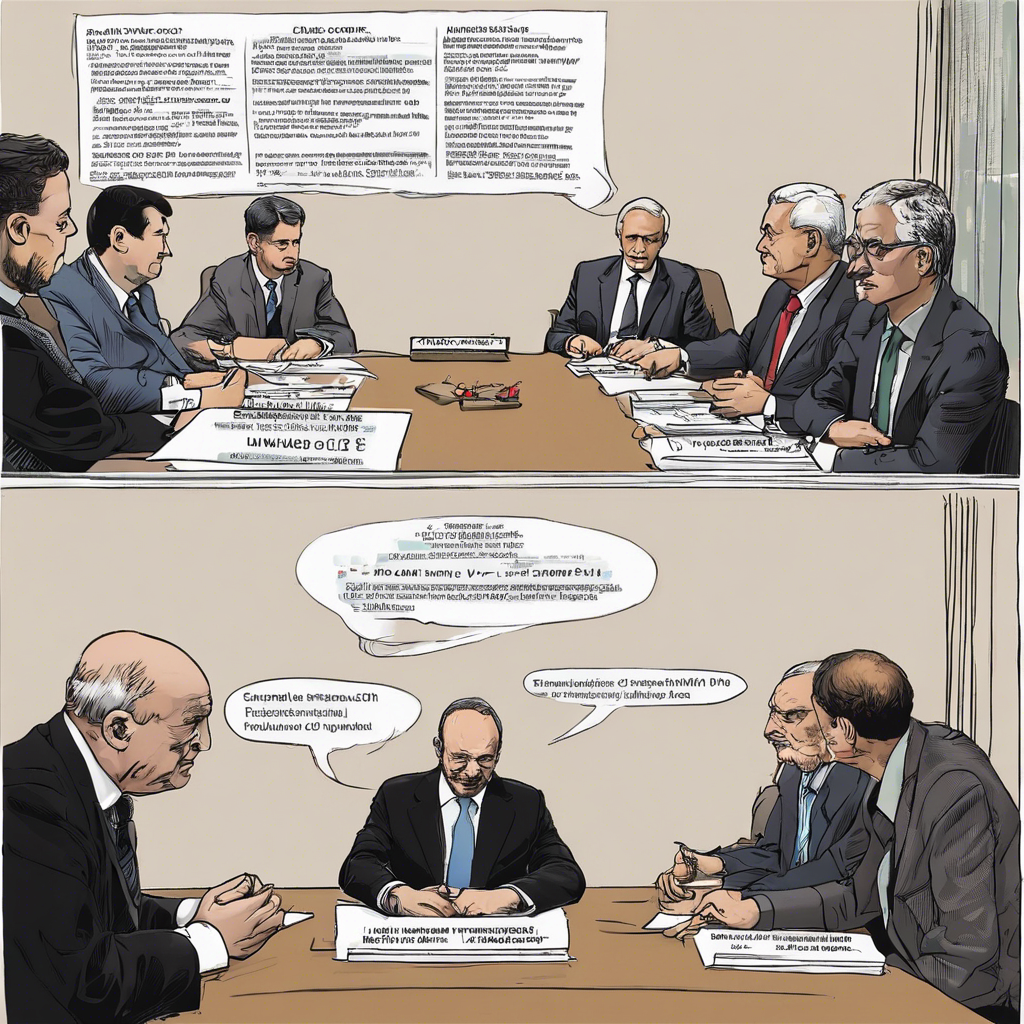UN Security Council Approves Resolution for Humanitarian Pauses and Aid in Gaza Conflict

The United Nations Security Council has passed a resolution calling for humanitarian pauses, increased aid, and conditions for a sustainable end to the conflict between Israel and Hamas. The resolution received support from most members, but the United States and Russia abstained from the vote.
After days of closed-door negotiations, the United Nations Security Council has approved a resolution aimed at addressing the ongoing conflict between Israel and Hamas. The resolution calls for humanitarian pauses, increased aid to Gaza, and the creation of conditions that will allow for a sustainable end to the fighting. While the resolution received support from most members of the Security Council, the United States and Russia abstained from the vote, choosing not to use their veto power. This article will delve into the details of the resolution, the reasons behind the abstentions, and the implications for the conflict.
Humanitarian Pauses and Aid in Gaza
The resolution emphasizes the need for “urgent and extended humanitarian pauses and corridors throughout the Gaza Strip” to ensure safe and unhindered access for humanitarian aid. This provision aims to alleviate the dire humanitarian situation in Gaza, where civilians have been suffering from a lack of basic necessities, including food, water, and medical supplies. The resolution also calls for increased aid to Gaza, recognizing the urgent need to address the humanitarian crisis.
US Abstention and Concerns over Hamas
The United States, one of the permanent members of the Security Council, abstained from the vote despite praising the resolution. The main point of contention for the US was the lack of condemnation of Hamas in the text. A senior US diplomat expressed disappointment over the omission, stating that the council should have been more explicit about how the conflict began. However, the US decided against voting against the resolution to avoid global backlash, as it had experienced when vetoing a previous ceasefire resolution.
Conditions for a Sustainable Cessation of Hostilities
The resolution emphasizes the need for “urgent steps” to lay the groundwork for a sustainable end to the hostilities. This language reflects the ongoing debate over whether the time is right for an immediate ceasefire or if certain conditions need to be met first. The United States supported the idea of ensuring the conditions are right before a cessation of hostilities, arguing that this approach would lead to a more sustainable peace in the long run.
Disagreements over Monitoring Mechanism
An earlier draft of the resolution included a provision for the United Nations to establish a monitoring mechanism in Gaza. However, the US argued that this would be impractical and could hinder the delivery of aid. The US diplomat stated that the proposal for a new monitoring system was unworkable and would create chaos instead of improving the flow of aid. This disagreement over the monitoring mechanism caused delays in finalizing the resolution.
Israeli Response and UN’s Role
Israel responded to the resolution by expressing gratitude for the US efforts to address problematic elements in the text. However, Israeli officials also stated that they consider the resolution unnecessary and believe it highlights the UN’s inability to play a positive role in the conflict. They pointed to the UN’s failure to condemn the October 7 massacre as evidence of this.
Conclusion:
The approval of the UN Security Council resolution marks a significant step towards addressing the humanitarian crisis in Gaza and establishing conditions for a sustainable end to the conflict. While the resolution received broad support, the abstentions of the United States and Russia highlight the complexities and differing perspectives surrounding the conflict. The resolution’s emphasis on humanitarian pauses, increased aid, and the need for conditions for a sustainable cessation of hostilities provides a framework for future efforts to bring peace to the region. However, challenges remain, and it is crucial for all parties involved to work towards a lasting solution that addresses the root causes of the conflict.

